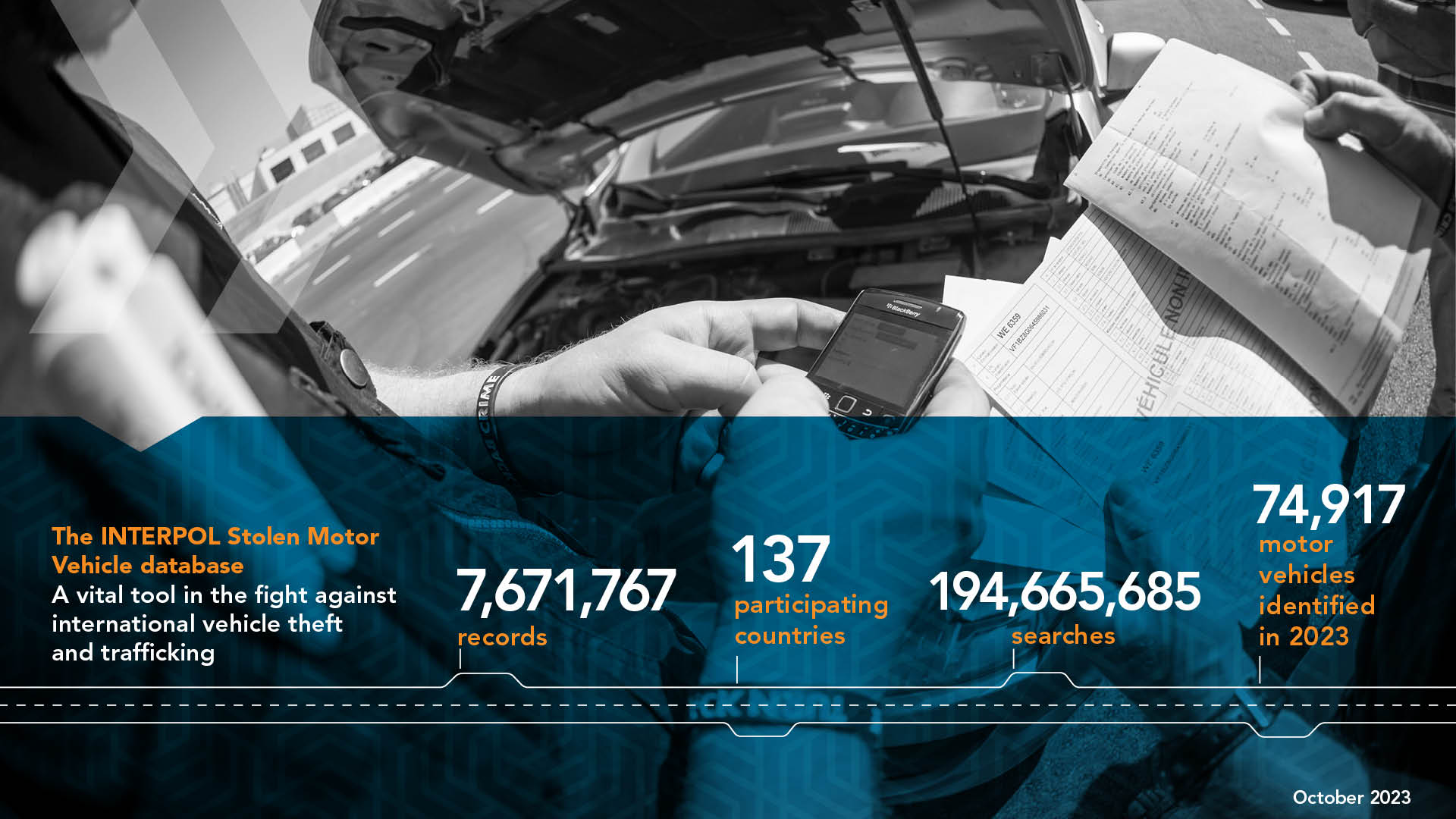We work with manufactures and help law enforcement around the world fight vehicle crime through a range of activities designed to increase their capacity.
Stolen Motor Vehicle Database
The INTERPOL Stolen Motor Vehicle (SMV) database is a vital tool in the fight against international vehicle theft and trafficking. It includes data on stolen cars, trucks, motorbikes, trailers, caravans, buses and their components.
The database allows police in our member countries to run a check against a suspicious vehicle and find out instantly whether it has been reported as stolen. An international database of this nature is crucial as vehicles are often trafficked across national borders, sometimes ending up thousands of miles away from the location where they were stolen.
Currently the SMV contains more than 12 million records.In 2023, around 226,000 motor vehicles were identified as stolen, thanks to the database.

Transnational operations
We help member countries dismantle the criminal networks behind vehicle crime through investigative support and global operations.
Operations are preceded by training sessions to ensure that officers on the ground are trained in a range of skills, including investigative techniques and the use of INTERPOL’s tools and databases.
Global Conference on Vehicle Crime
We organize an annual global conference to address the rising theft of vehicles and the illicit trade in spare parts. This event acts as a forum for law enforcement, government, industry experts, private companies and international organizations to share their expertise in fighting vehicle crime.
Principal topics include an overview of traditional and new routes for car trafficking and links between vehicle crime and other forms of organized crime such as terrorism, drug trafficking and people smuggling.
Fourth INTERPOL Global Conference on Vehicle Crime
This conference took place in Lyon from 30 May - 1 June 2023. It was co-organized by INTERPOL in collaboration with the International Association of Auto Theft Investigators (I.A.A.T.I.).
Key recommendations highlighted the need to update national records on stolen motor vehicles, extend access to INTERPOL’s global databases and set up partnerships to tackle the increasing threat of fraud.
Related news





